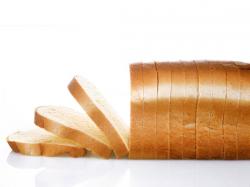Scientists Say White Bread Helps Boost Some Of The Gut's 'Good' Microbes
June 16, 2014 | 2 min to read

"Pilot Study of Diet and Microbiota: Interactive Associations of Fibers and Polyphenols with Human Intestinal Bacteria"
-Journal of Agricultural and Food Chemistry
White-bread lovers take heart. Scientists are now reporting that this much-maligned food seems to encourage the growth of some of our most helpful inhabitants — beneficial gut bacteria. In addition to this surprising find, their study in ACS’ Journal of Agricultural and Food Chemistry also revealed that when looking at effects of food on our “microbiomes,” considering the whole diet, not just individual ingredients, is critical.
Sonia González and colleagues note that the bacteria in our guts, or our microbiome, play an important role in our health. When certain populations of bacteria drop, people become more prone to disease. One of the most effective ways to maintain a good balance of the microbes living in our guts is through our diets. To figure out what dietary ingredients promote helpful bacteria, several studies have looked at the effects of individual fibers and probiotics. But few researchers had investigated the role of polyphenols, which are common in much of what we consume — spices, teas, fruits and vegetables — or how polyphenols and fibers together help balance our gut microbes. González’s team wanted to fill that gap.
To do so, they asked 38 healthy adults questions about their diets and figured out which bacteria were present in the participants’ stool samples. Their analysis revealed that pectin, a compound in citrus fruits, lowers the levels of some helpful bacteria. This is contrary to previous research on pectin alone. The researchers suggest that pectin interacts with other substances in oranges, leading to this unexpected effect. Their most novel finding, they said, was that white bread boosted Lactobacillus, a group of beneficial bacteria.
The authors acknowledge funding from the Spanish Ministry of Science and Innovation.
Source: American Chemical Society
